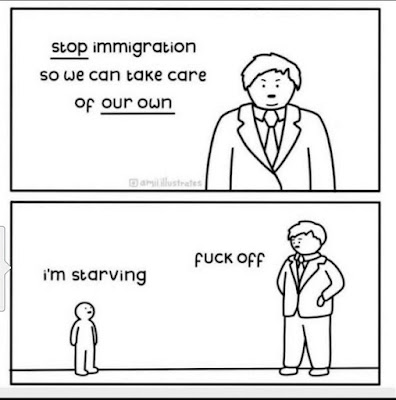In Boris Johnson’s words, that “low wages, low growth, low skills and low productivity” are the product of “uncontrolled immigration”.
Employers have always sought to exploit groups seen as marginal to the main workforce and therefore employable at lower rates and worse conditions; not just migrants, but women, young people, old people, unemployed people.
Of the 27
EU countries, 20 show higher productivity than the UK. Of these, six – Germany, Ireland, Austria, Sweden, Spain and Estonia – have higher foreign-born populations than Britain. They also have smaller proportions of low-paid workers.
Studies have also shown that EU migration had little impact on British wages. Some research suggests that workers at the bottom of the labour market suffered a small decrease. The impact, though, was slight and the benefits for even for the least well paid outweighed the disadvantages.
Rather than looking to immigration to explain low wages, low productivity and high inequality in Britain, we would do better to think about how social and economic policies since the 1980s have helped create a flexible, deregulated labour market. And how this, combined with the erosion of the power of trade unions, has allowed for the exploitation of relatively cheap labour rather than capital investment. Trade union membership fell from 13.2m in 1979 to a record low of 6.2m in 2106, since when it has slightly recovered to 6.5m last year.
Fewer than one in four employees is unionised. Those who most need union protection – such as workers in the gig economy – are least likely to be unionised, though new organisations such as the IWGB are beginning to address this.
Between 1937 and 1979, union membership in Britain doubled while the share of income going to the top 1% fell by two-thirds. Between 1979 and 2014, membership of unions fell by a half and the share of income for the richest 1% more than doubled. In America, too, there is “consistent evidence that unions reduce inequality”.
Nurses’ pay has fallen in real terms by 5% since 2010. One that has presided over a social care system in which support workers earn £17,695 a year and are likely to take a real-term pay cut under the latest care proposals.
Blaming migrants is politically cheap but socially costly. It diverts our attention from the real causes of low pay and holds us back from taking the kind of collective action necessary to defend living standards. Want to improve wages? Don’t scapegoat immigrants. Don’t create shortages. Rebuild our unions.
Blame the erosion of trade union power, not migrants, for poor wages | Kenan Malik | The Guardian



No comments:
Post a Comment